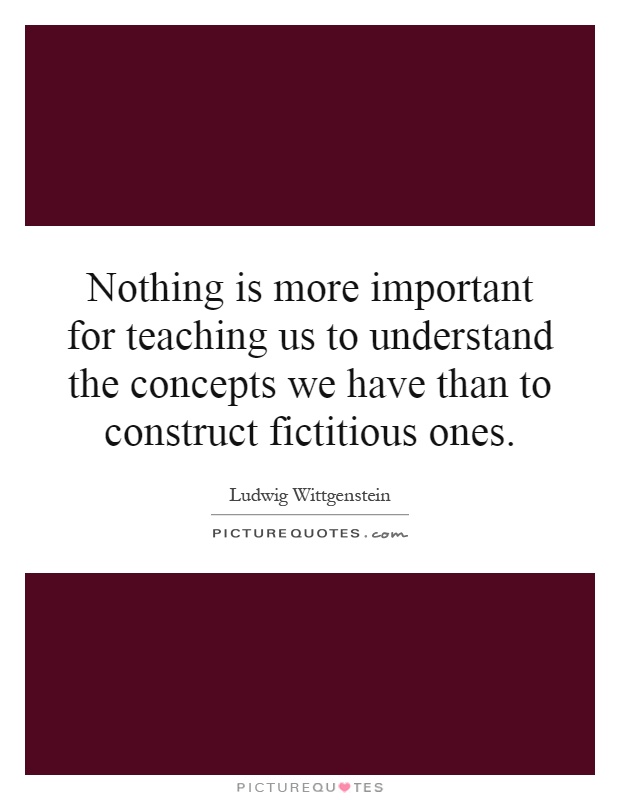Nothing is more important for teaching us to understand the concepts we have than to construct fictitious ones

Nothing is more important for teaching us to understand the concepts we have than to construct fictitious ones
Ludwig Wittgenstein, a renowned philosopher of the 20th century, is often associated with the idea that nothing is more important for teaching us to understand the concepts we have than to construct fictitious ones. This notion is central to Wittgenstein's philosophy of language and his approach to understanding the nature of language and meaning.Wittgenstein believed that language is not simply a tool for communication, but rather a complex system of rules and conventions that shape our understanding of the world. He argued that the meaning of words is not fixed or determined by some external reality, but rather emerges from the way in which they are used in specific contexts. In this sense, language is a form of social practice that is constantly evolving and changing.
According to Wittgenstein, the best way to understand the concepts we have is to engage in what he called "language games." These are fictitious scenarios or thought experiments in which we manipulate language in order to explore its limits and possibilities. By constructing these fictitious worlds, we are able to see how language functions and how it shapes our understanding of reality.
One of the most famous examples of a language game in Wittgenstein's work is the concept of a "language of thought." In this thought experiment, Wittgenstein asks us to imagine a language that is completely private and inaccessible to others. He argues that such a language would be meaningless, as it would lack the social context and conventions that give words their meaning.
By engaging in these thought experiments and constructing fictitious worlds, we are able to see the limitations of our language and the ways in which it shapes our understanding of the world. Wittgenstein believed that by challenging our assumptions and exploring alternative possibilities, we can gain a deeper insight into the nature of language and meaning.












 Friendship Quotes
Friendship Quotes Love Quotes
Love Quotes Life Quotes
Life Quotes Funny Quotes
Funny Quotes Motivational Quotes
Motivational Quotes Inspirational Quotes
Inspirational Quotes